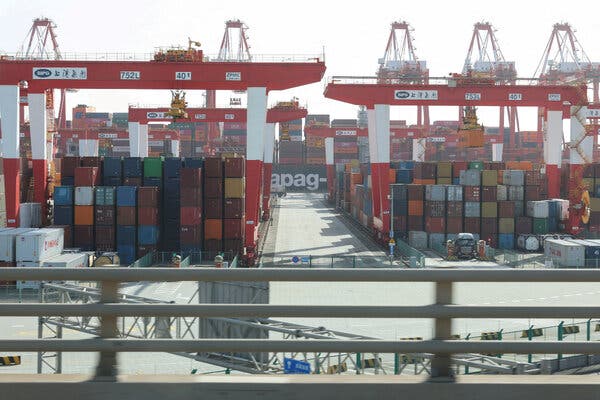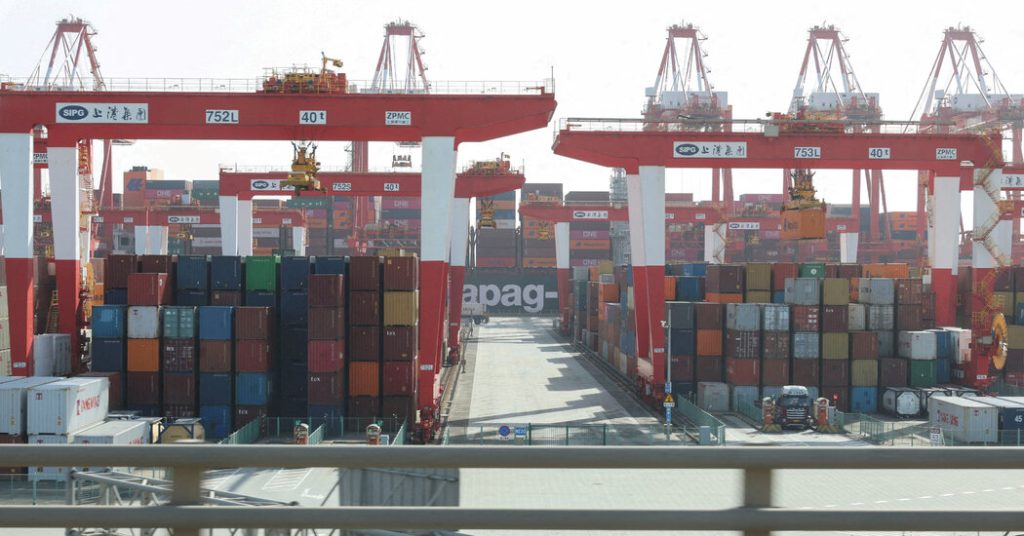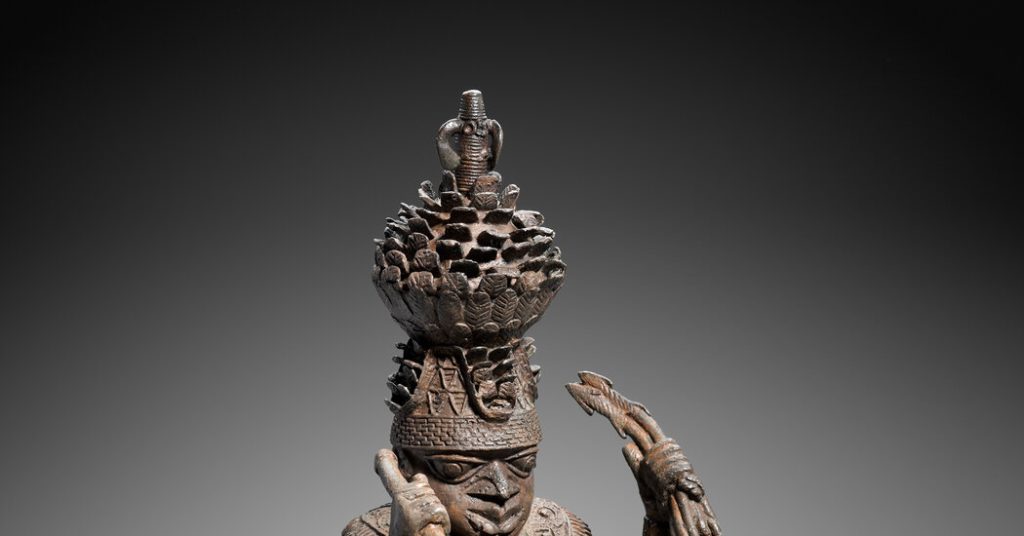

There are new signs that Washington and Beijing are de-escalating their trade clash, suggesting that some sectors could see relief from tariffs.Credit…Go Nakamura/Reuters
A dovish shift
Stocks are on a three-day winning streak as investors cheer cooling trade-war tensions. Another boost has come from the Fed and from Google, whose shares are up nearly 5 percent in premarket trading on decent first-quarter results.
But while Washington and Beijing seem to be easing off their brinkmanship, it may be too late to reverse the damage to the economy and business psychology.
The latest: China may suspend some of its most onerous levies on vital U.S. imports — including plane leases, medical equipment and industrial chemicals — Bloomberg reports. That comes as President Trump reportedly considers dialing back levies on China imports, and is open to some exceptions on key imports, like car parts. (Worth noting: Beijing and Washington can’t even agree on whether they have begun talks.)
Stocks in Asia and Europe, the dollar and U.S. Treasury bonds and notes are rebounding on those dovish trade signals. This week’s rally is the most sustained run since Trump’s introduction of reciprocal tariffs this month, pushing the S&P 500 out of correction territory.
A de-escalation would signal what C.E.O.s have been saying for months: A full-on trade war would clobber global commerce. Still, businesses are wondering whether Trump and Beijing are laying the foundation for a too-big-to-tariff trade regime in which goods like autos and tech are spared, but nonstrategic imports get heavily taxed.
Companies and households are feeling some pain. Chipotle, Procter & Gamble and several airlines have warned that consumers are worried about tariffs and have begun to pull back on spending. (More on that below.) There is pain in the real estate market, too.









